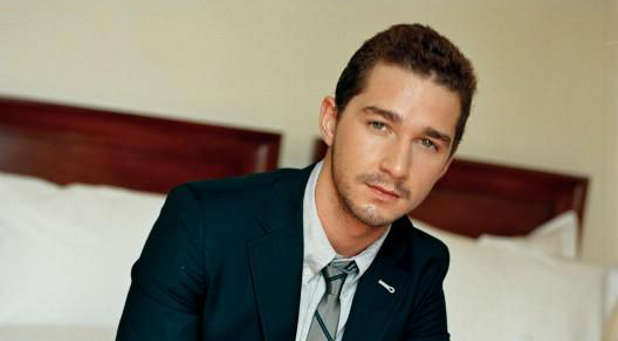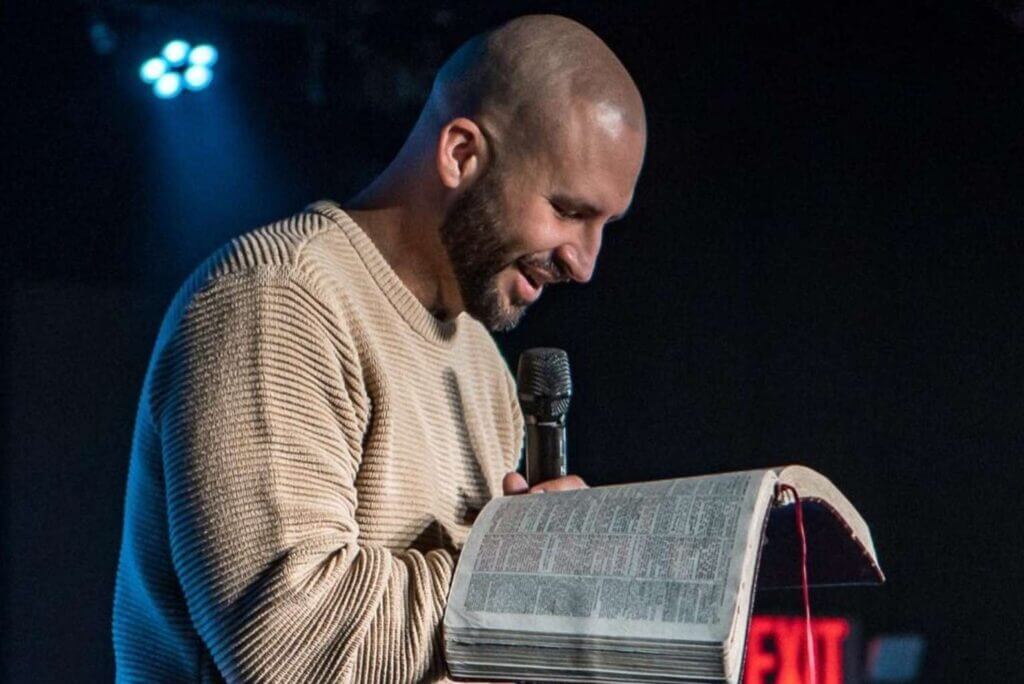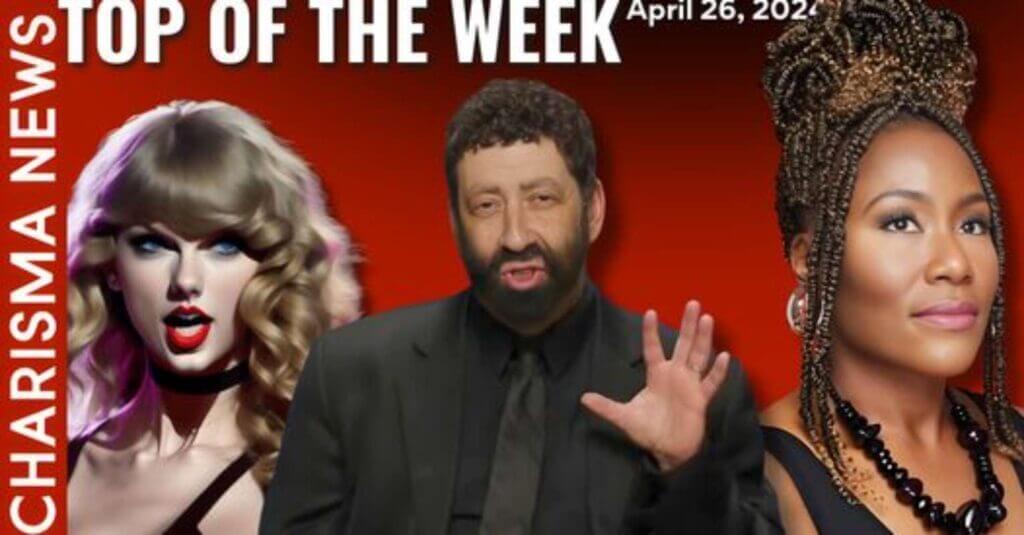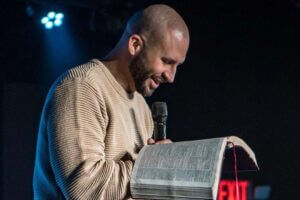After four years of young manhood, graduated from High School and working in a strip coal mine, life had beaten and bruised me up pretty good. The long 12-hour work shift at night was becoming monotonous and leading me to unhealthy habits. My physical frame seemed sickly—barely a 30-inch waist and 150 pounds.
When I walked into the small Pentecostal church, heads turned and eyes wide open, the faithful stared—even gawked. In a small town, I must have been a little bit notorious. My behavior was well known, especially to the few teenagers who sit in the first three rows, not because they wanted to but to prove to their parents the sincerity of their faith.
I took a seat at midpoint in the pews. I wasn’t a believer. I was visiting. I had never been to a church where the order of service included standing, singing, lifting hands, everyone praying simultaneously—out loud. There was the southern gospel singing, the handful of choir members, and a fiery sermon with a very long appeal for “sinners” to come forward.
I enjoyed it and found it interesting, but I didn’t respond. Nor did I respond at the Sunday night service, just before I went to work. When I came back for Wednesday night service, the pastor knew that I was serious.
When Pastor Taylor gave the altar call that night, he was determined. After several minutes with bowed heads and closed eyes, he gave up attempting to draw me to the altar—he left the pulpit and came to me. He sat down beside me and asked, “Brother, don’t you want to be saved?”
My response didn’t cause him to flinch, “Yes, but, if I am going to do this, I am not (expletive) with it.”
I stood up and walked to the altar with him, knelt down, for him to lead me in a prayer of salvation. I confessed, “Jesus is Lord.” I was saved.
Unfortunately, I didn’t know the rules and traditions to mimic. I failed to cry, which caused the “faithful” to question the sincerity of my experience. They seemed disappointed.
A few weeks later, I visited a county fair with some old friends, where a fight broke out and I got into the middle of it. When the skirmish was over, I looked over to see some of my new friends from the church. Without hesitation, I smiled and waved at them. Their look of disappointment was obvious.
By the time that I returned to the next service, I discovered that “Christians” love to gossip. They were already “interceding” for me because I had “backslidden.”
When I read the headline that the notorious actor Shia LaBeouf had become a “Christian man,” I was thrilled—and a bit concerned. Especially when I read the interview filled with passionate expletives, I knew that the “faithful” would have a hard time computing that testimony.
In the movie, Fury, with fellow actor, Brad Pitt, who grew up in a Christian family and attended a Pentecostal church, Shia plays a man of faith and this experience had a dramatic effect upon him, causing him to confess, “I found God doing Fury. I became a Christian man.” Shia goes on to say, “Brad was really instrumental in guiding my head through this.”
Interestingly, even though Brad Pitt has said that he has moved away from his faith, he helped guide Shia to understand what he had experienced in a “very real way.”
Here’s my challenge: What are we going to do with men whom we reach?
How are we going to respond to them when they don’t immediately adopt our rules and traditions, and when their unsanctified language is filled with expletives?
Not long ago, I spoke at a conference for men and used some pretty crass language to describe the stupidity of men gawking at women when they walk by them. I did so to mock the men who are so juvenile that they would look upon women in such a way.
Interestingly, after the close of the service, several men accepted Jesus Christ as their Savior, others recommitted their lives to follow Him, and still more dedicated themselves to living as authentic men, refraining from impure lifestyles. Several men told me that my use of that language actually helped them see the stupidity of their sophomoric behavior.
It was only a few days later that I received a couple of phone calls from a couple of pastors who were offended by my language and went so far as to question my faith because of it. My heart is truly not to offend, but to convey the truth when speaking to men. I have committed to use more tactful and appropriate language to convey my point.
When Saul, the murderous zealot had his miraculous conversion, the faithful questioned the validity of it. “How could God save someone so disgusting as Saul, or Shia, or Neil?” they reasonably ask.
We often marvel at the grace that is afforded us, and question the grace afforded others at the same time. LaBeouf has said, ” I’m trying to find a way to have some control over my actions, my behavior, my ideas, my thoughts, my path in life. But it’s very new for me.”
After a violent man becomes a believer, it is very important that he has someone to help navigate the course of his next few steps.
Following his commitment to Christ, Saul tried to join the disciples in Jerusalem, but they were all afraid of him, not believing that he really was a disciple.
If we’re going to reach men we must get over our fear of them. In my experience of leading men to reach men, I’ve noticed a hesitancy and timidity that paralyzes them from taking bold action. We must step up and come along side these guys taking the risk and help them navigate the next few steps.
Barnabas stepped up and took Saul with him to the apostles. In the course of time Saul becomes the Apostle Paul, persecuted, often stoned, beaten, shipwrecked, and imprisoned—yet, also the key player in bringing the Gospel to the gentiles and writing the letters that bring such revelation to our faith.
We’re living in serious times that are causing men to question everything about modern society. Culture is being reprogrammed and manhood is being redefined. This is causing men to have an identity crisis.
LaBeouf was quoted as saying, “I’ve been going through an existential crisis. If you look at my behavior, it’s been motivated by a certain discourse. Metamodernism has influenced a lot of my action in the public in this last year and a half—the idea of diametrically opposed ideas happening all at once: the irony and the sincerity, birth and death, the immediacy and the obsolescence.”
In this statement, Shia is defining metamodernism as his personal suffrage of looking for something as a man. It’s him looking around the rubble of crisis—societal, environmental, financial, even existential crisis. In playing a man of faith in the movie, Shia experiences a very real truth—namely, Christ.
I believe that the Holy Spirit is speaking to the heart of men. Now is the time for us to strategically position ourselves with wisdom and without prejudice to be the voice of authentic manhood, guiding men to the reality of Christ and helping them navigate their course.
My prayer for Shia, is simple, “Holy Spirit, bring alongside Shia a man of encouragement to help him navigate this challenging course. Strengthen his faith. Amen.”
My prayer for myself after seeing the story about Shia, “Holy Spirit, don’t let me call any man impure or unclean whom you have saved” (Read Acts 10:28).
Neil Kennedy, author of several books, including FivestarMan: The Five Passions of Authentic Manhood, Centurion Principle, Mother’s Guide to Raising a FivestarMan; God’s Currency; and Speaking the Father’s Blessing; authored articles for scholarly journals; and multiple magazines, publishes The Daily Champion for men; and is founder of FivestarMan, an international movement of men.
For the original article, visit fivestarman.com.
See an error in this article?
To contact us or to submit an article




















